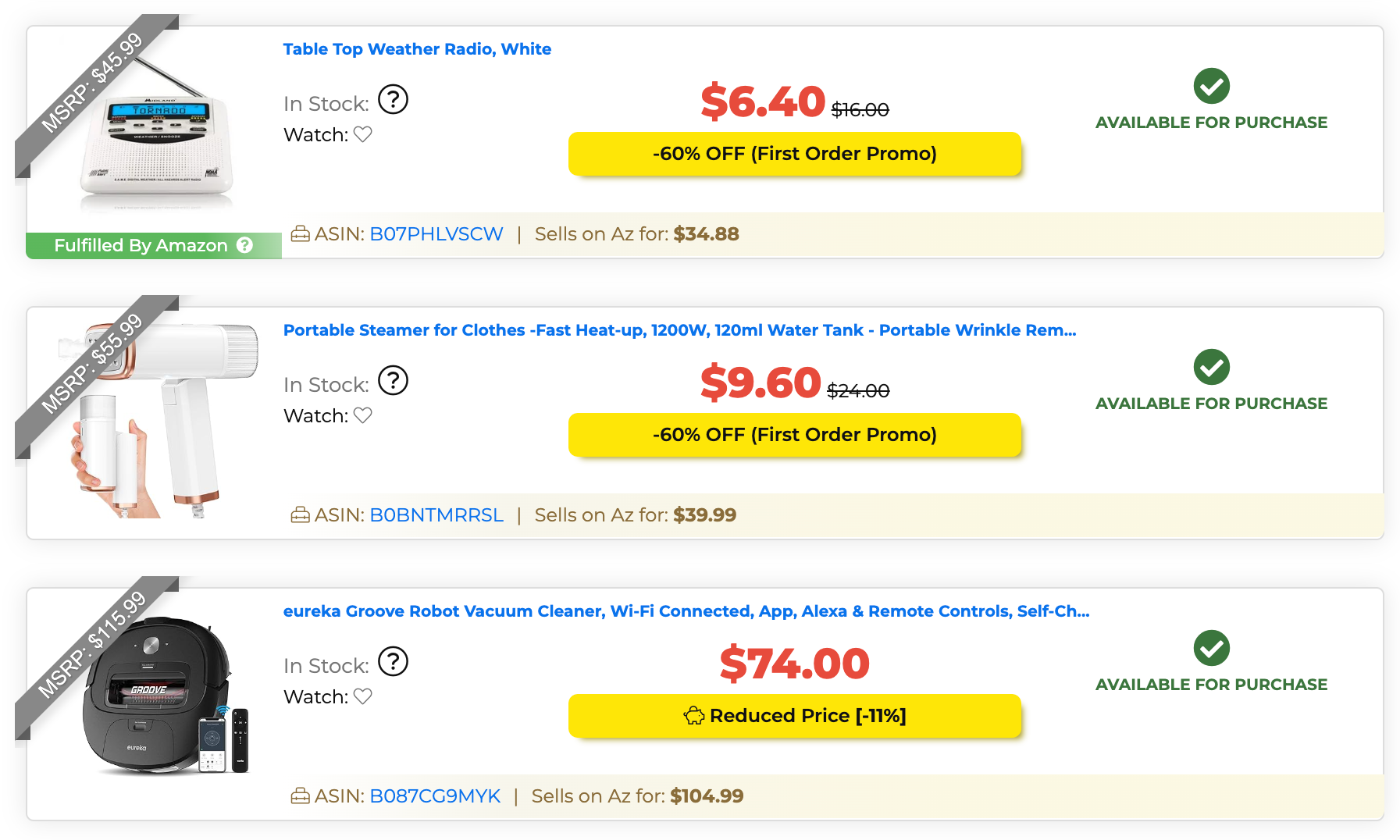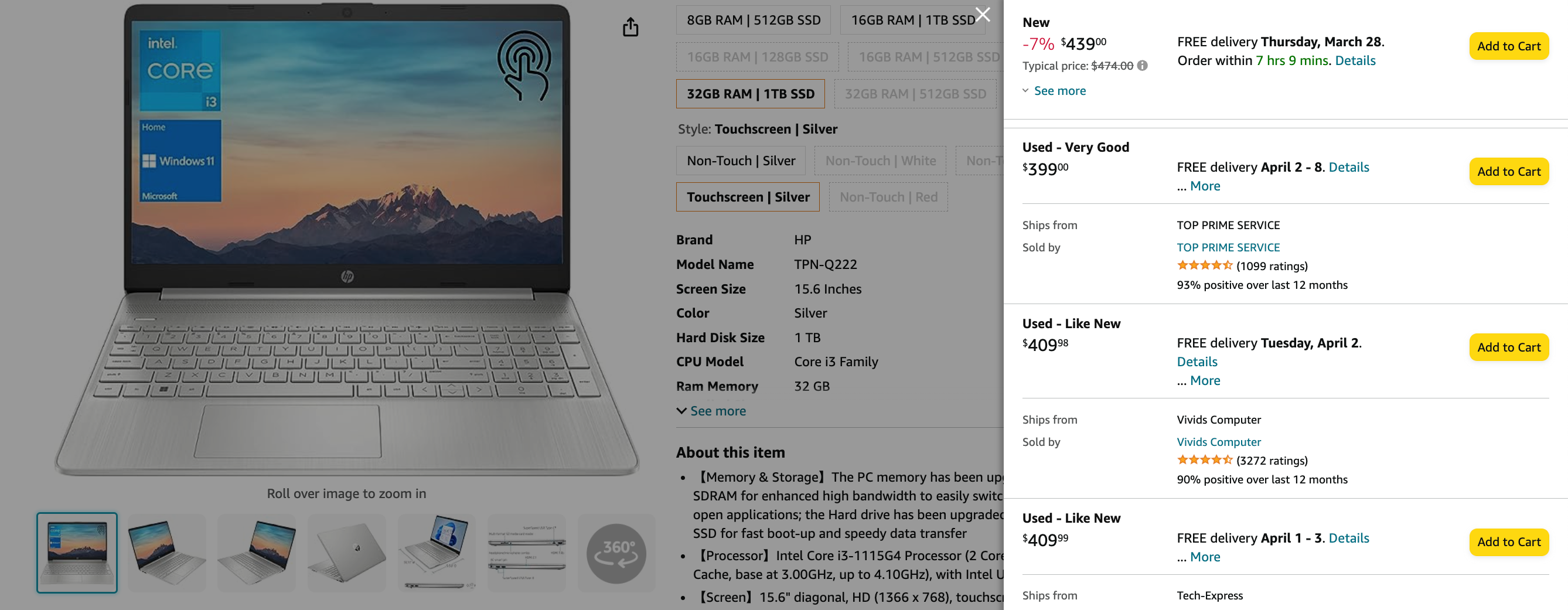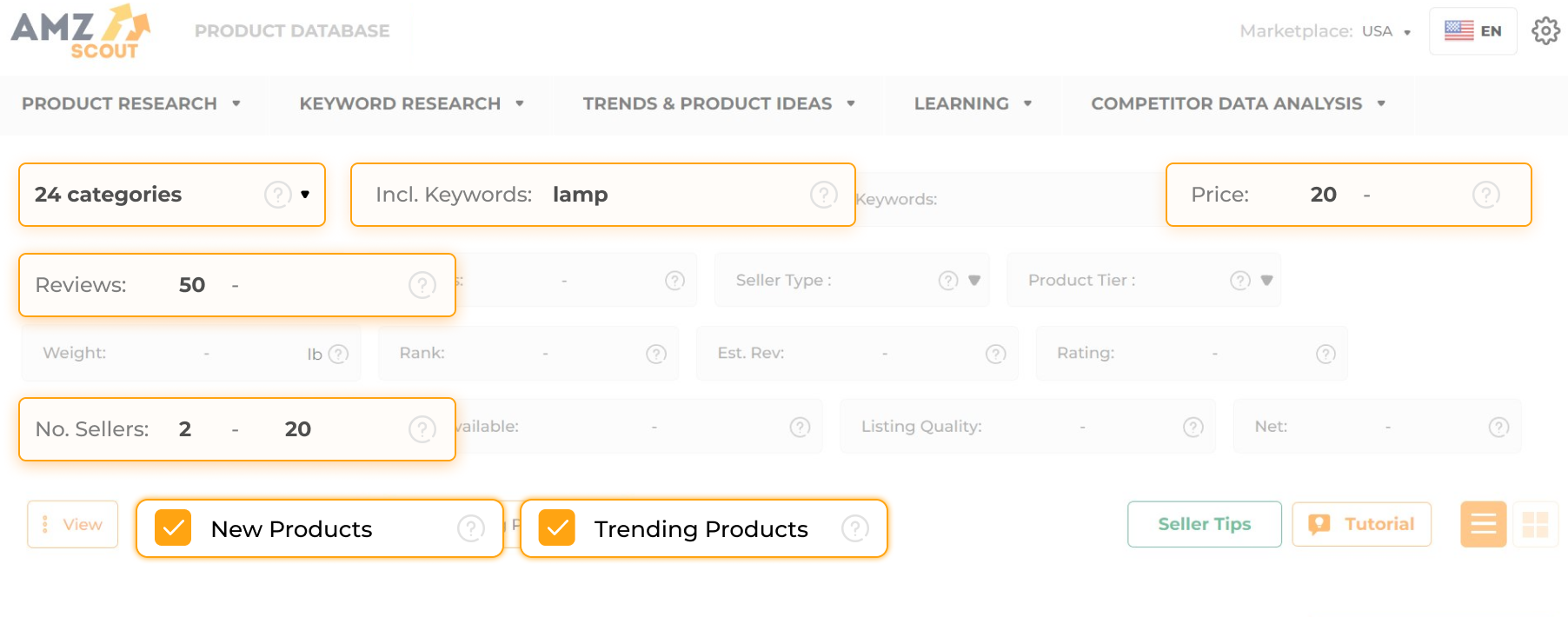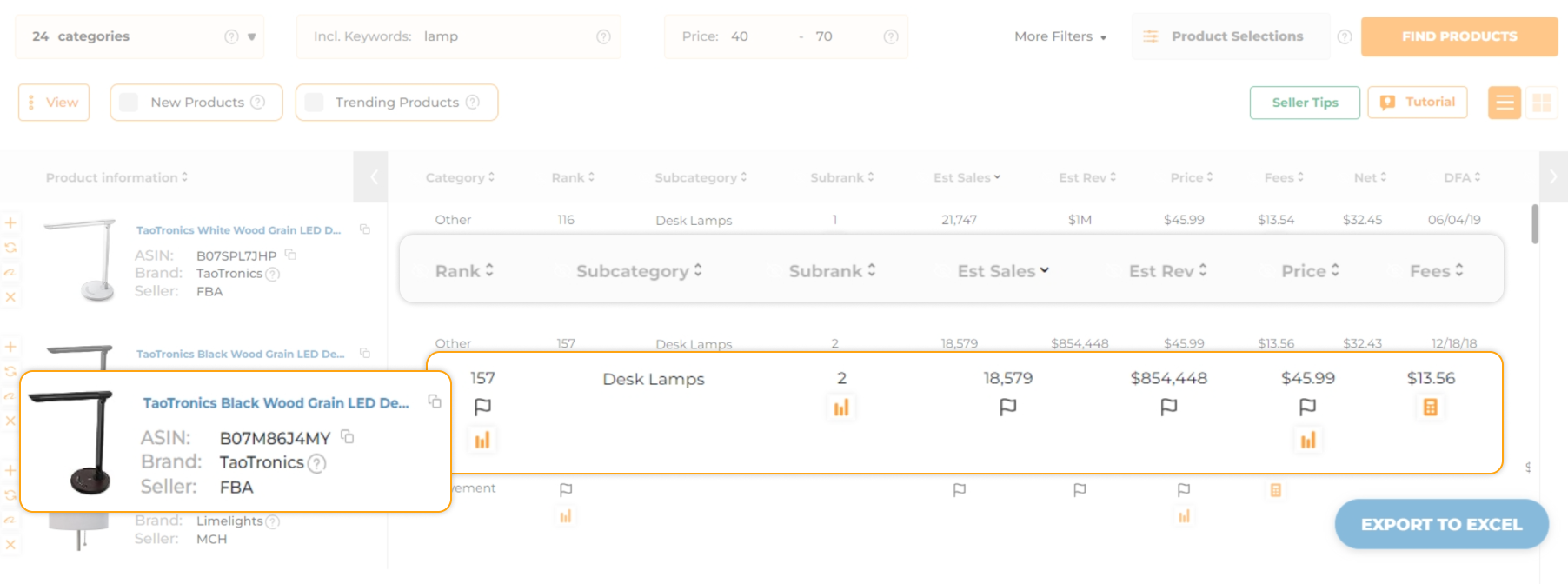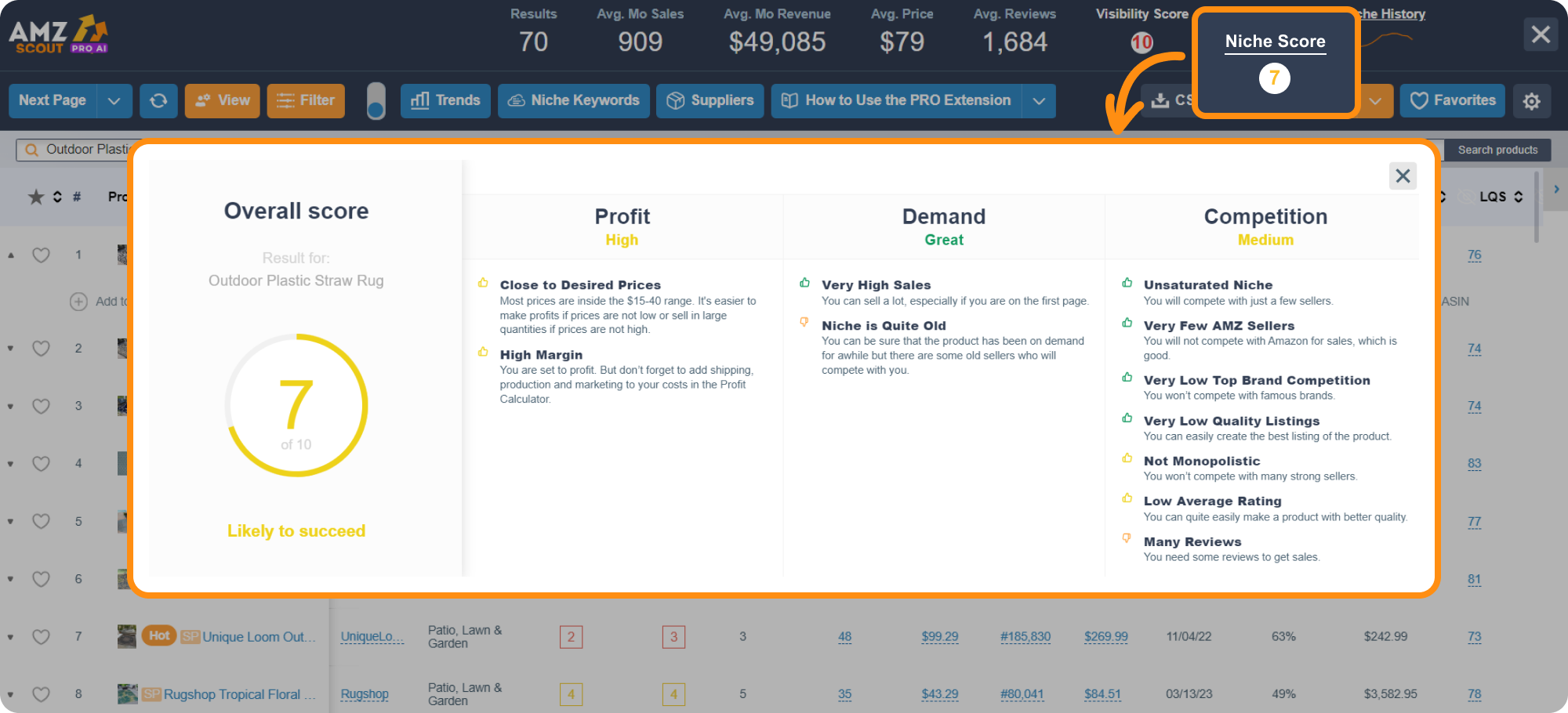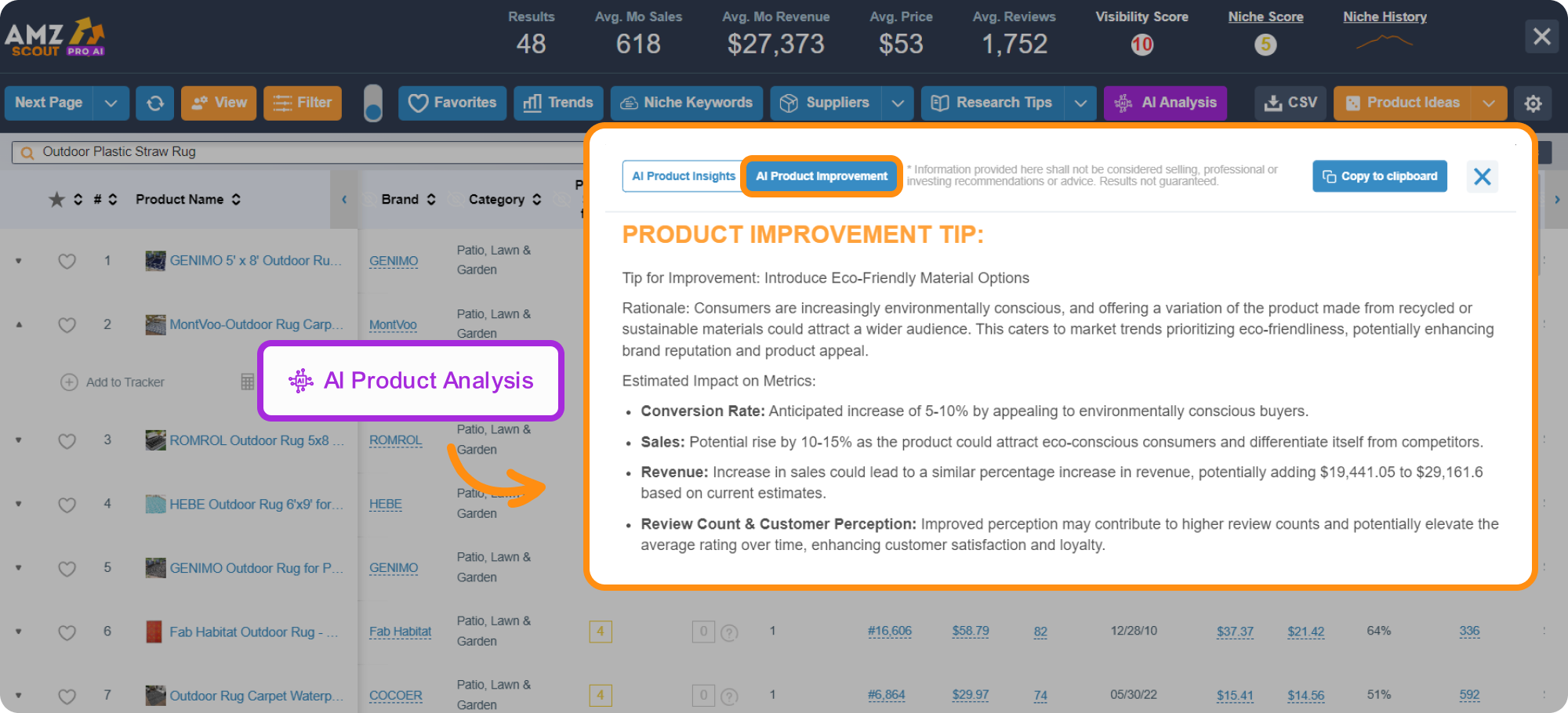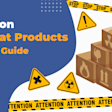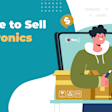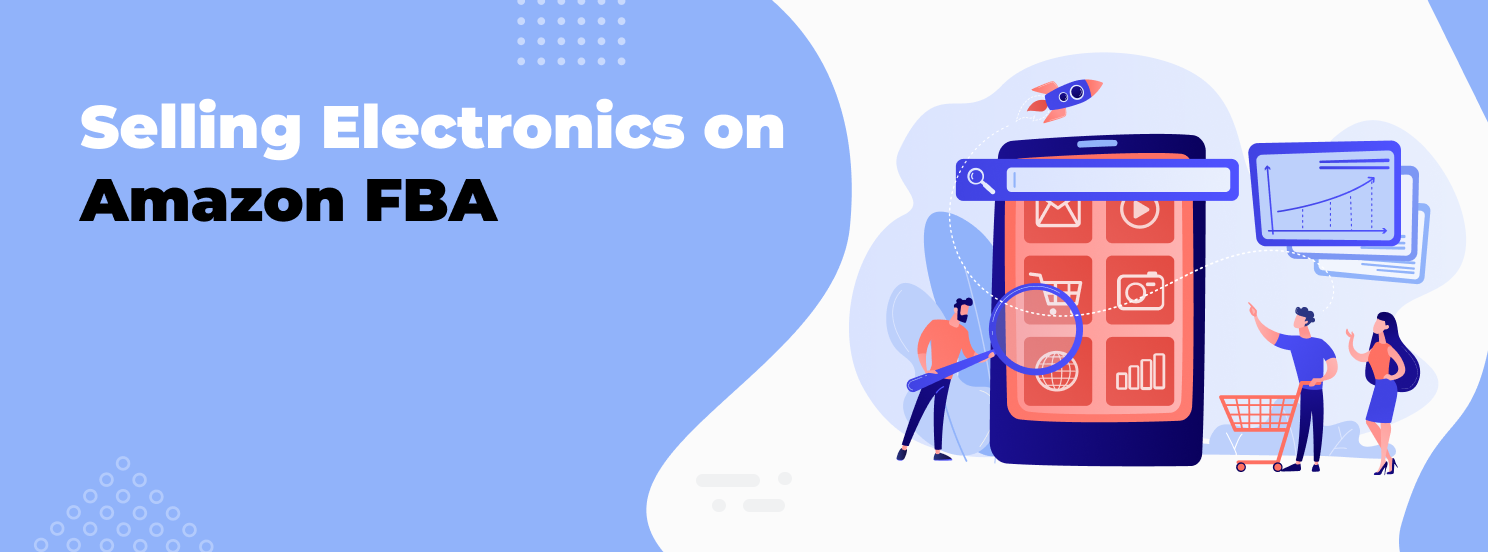
How to Sell Electronics on Amazon FBA for New and Used Items
Electronics are one of Amazon’s hottest categories, attracting millions of buyers for everything from low-cost accessories to premium gadgets. With constant innovation, the niche offers huge potential for sellers. If you’re interested in selling electronics on Amazon FBA, this category can be one of the most profitable to enter, especially when you focus on top selling electronics and pair them with the right fulfillment strategy.
This article covers the main ways to start selling electronics on Amazon FBA, including private label, online arbitrage, and used or refurbished items. You’ll also learn how to research trends, evaluate competition, and use tools like AMZScout to identify and confirm profitable electronics niches before you invest.
Table of contents
Why Electronics Are a Top-Selling Category on Amazon
Research shows that 44% of people buy electronics on Amazon, which makes these items the most desirable category of products that buyers purchase. Both Prime and non-Prime customers really like buying electronics on Amazon. More than 44% of people tend to buy electronics on this platform, while 62% of Prime members and 73% of non-Prime members show an interest in computers. Younger adults, (ages 18 to 26 years) prefer to buy smartphones and related items.
The Electronics category on Amazon covers a wide range of items, from small and inexpensive things (like cables and phone cases) to larger, pricier products (like home theaters and professional printers). This includes new gadgets as well as old electronics that still have demand from buyers looking for affordable alternatives.
If you love electronics and gadgets, you might want to try these options for your Amazon FBA business:
Sell electronics accessories (great for private label selling)
Try online arbitrage (focus on popular and pricier items)
Sell
used electronics
No matter which option you choose — private label, online arbitrage, or selling used items — the process of starting on Amazon FBA follows the same basic steps.
How to Sell Electronics on Amazon FBA: Step-by-Step
If you want to start selling electronics on Amazon, here are the main steps you’ll need to take:
Create a Seller Account – Register through Seller Central. If you are new, make sure to check out our guide to the Amazon Seller Account to understand account types, fees, and how it works.
Pick Your Products – Research profitable electronics with the AMZScout Product Database and PRO AI. Focus on consistent sales, manageable competition, and solid demand.
Check Compliance – Make sure your items (especially branded or battery-powered products) are eligible and meet Amazon’s safety and category rules.
Source Inventory – Choose your model: private label, online arbitrage, or sell used/refurbished electronics via Amazon Renewed.
Optimize Your Listings – Create strong titles, descriptions, and keywords to drive traffic. Follow this Amazon listing optimization guide for best practices.
Ship to FBA – Send your products to Amazon’s fulfillment centers so they handle storage, delivery, and customer service.
Selling Electronics as part of a Private Label
Let's look at the first choice, which is better for sellers who are interested in establishing their own brand and product. When selling electronics on Amazon FBA under a private label, you also benefit from Amazon’s warehousing, packaging, and fast shipping, which helps build trust with buyers in this competitive category.
The Electronics category is very dynamic. Every day, new gadgets and electronic items appear on the market. New mobile phones are released, and older ones start to be forgotten. It’s important to keep up with what’s new, adapt to emerging trends, and update your listings quickly to feature best selling electronics. Doing so can bring in more sales, especially when demand is growing fast.
Note: These graphs show how interest in a new product tends to grow quickly at first, then gradually decreases over time. The best chances for sellers are when interest is rising and at its highest points. During these times, there's less competition but lots of demand.
Here are some important things to remember if you're selling through a private label:
There's a lot of competition
The good news is that there's also a high demand for what you're selling
Electronics is a fast-changing category, so make sure to keep an eye on the latest trends
Selling Electronics through Online Arbitrage
If you plan to utilize online arbitrage, you'll have to conduct a thorough search and talk to suppliers. Checking for sales and good deals from both online and offline stores can help. Wholesale websites might be helpful too. Remember, when you sell electronics on Amazon, customer reviews and ratings are really important. When it comes to the Electronics category, customers tend to put a lot of trust in reviews when they decide what to buy. So, before you buy something, make sure people like it and it sells well on Amazon. This doesn’t just apply to electronics, but for any kind of product you sell.
Using Amazon FBA for online arbitrage means you can source profitable electronics from multiple channels, ship them to Amazon’s warehouses, and let Amazon handle the storage, delivery, and customer service.
A big question is where to find products. This can take a lot of time to figure out! You might look at sales and deals, or search for coupons and promotions. There are several of places where you can find products for online arbitrage (like 888lots, bluelots.com, selectliquidation.com, and more).
Selling Used Electronics
Electronics is one of those categories where Amazon allows sellers to offer used items, as long as they comply with certain conditions: New, Certified Refurbished, Used.
Amazon has a program for selling used electronics called Amazon Renewed. Here, sellers can list pre-owned and refurbished items that must meet Amazon's standards for performance and inspection. Amazon has strict requirements for sellers who want to list used items. You can sell phones, cameras, headphones, kitchen appliances, power tools, personal computers, tablets, TVs, video game consoles, and more. Check out a full list of conditions here.
How to sell used electronics with Amazon Renewed
Step 1. First, you need to register to be a seller on Amazon
Step 2. Qualify to sell on Amazon Renewed
In order to qualify as a seller of refurbished and pre-owned products on Amazon Renewed, certain details of your experience selling these types of products are required. You need to meet the following criteria to qualify as a seller on Amazon Renewed:
Provide invoices showing a minimum total value of $50,000 in qualifying refurbished purchases during the previous 90 days from your date of the application. You may black out the unit purchase amount on the invoices. Note that sellers who intend to offer products related to the Home, Tools, or Lawn & Garden, Kitchen categories may provide invoices showing a minimum total of $50,000 in qualifying refurbished purchases over the previous 180 days.
If you are an existing seller on Amazon, they require an ODR of 0.8% or less over the previous 90 days.
If you want permission to list factory refurbished items (with no manufacturer warranty) you need to submit a minimum of eight images of a sample unit for product and packaging review (including the box in which the product will ship, inside packaging and padding, the product from the top and bottom, and the product from all four sides).
Your company needs to back all of your refurbished products with the Amazon Renewed Guarantee, and is responsible for all claims under the guarantee.
Step 3. Start selling and grow your business
Use FBA to store and ship your used electronics, so customers receive fast Prime delivery and professional packaging — which can increase trust and sales.
The Electronics market may seem difficult and risky to enter, but as you can see, it also provides a lot of opportunities, especially for sellers who are fond of gadgets and like to stay updated on the latest electronic products and related accessories.
How to Find Profitable Electronics for Amazon FBA
Selling electronics on Amazon FBA requires more than picking popular gadgets — you need to ensure the niche has strong demand, manageable competition, and long-term potential. If you don’t want to spend hours manually checking dozens of products, AMZScout’s toolkit can help you quickly uncover high-potential electronics and confirm whether they’re worth selling.
Discover Profitable Electronics Niches with the AMZScout Product Database
The AMZScout Product Database contains detailed sales metrics for hundreds of millions of Amazon listings, making it ideal for spotting profitable niches in the Electronics and Accessories categories.
Here’s how to use it:
Open the Product Database and start a free trial by entering your email (no credit card required).
Set your filters to focus on electronics. Select the “Electronics | Computers | Accessories” category, then refine by monthly sales, price range, weight, and number of competing sellers.
Spot emerging trends by checking the “Trending Products” box to find electronics with rising demand over the last 1–3 months.
Review your results and shortlist niches that show consistent sales, solid pricing, and lower competition.
By using these filters, you can quickly narrow thousands of products down to a list of promising electronics that fit your selling strategy.
Validate Your Electronics Ideas with the AMZScout PRO AI Extension
Once you’ve found potential products, use the AMZScout PRO AI Extension to analyze them in detail and verify that the niche is truly worth entering.
Here’s how:
Install the PRO AI Extension for Chrome and log into your AMZScout account.
Search for your product or niche on Amazon and open the extension from your browser toolbar.
Review niche metrics such as average monthly sales, revenue, competition score (Niche Score), and historical sales trends.
Check competitor data to see how many sellers dominate the niche, how many reviews they have, and whether strong brands control most of the market.
Use AI Product Insights for a SWOT analysis, helping you identify opportunities, risks, and untapped sub-niches.
This validation step ensures you avoid overcrowded markets and focus on electronics niches where you have a real chance to compete and grow.
Conclusion
Selling electronics on Amazon FBA can be highly rewarding, but success depends on more than simply listing popular gadgets. The most profitable sellers focus on choosing the right products, staying ahead of trends, and managing competition effectively. Whether you launch your own private label, run online arbitrage, or sell refurbished items through Amazon Renewed, the key is to validate every product idea before investing.
By using tools like AMZScout’s Product Database and PRO AI Extension, you can quickly identify profitable electronics niches, analyze demand, and ensure your products have the sales potential to thrive. With the right research, a clear strategy, and FBA’s reliable fulfillment, you can build a scalable electronics business on Amazon that stands out in this competitive category.
FAQs
Do electronics sell well on Amazon?
Yes. Electronics are among Amazon’s top-selling categories, with 44% of shoppers purchasing them, driven by strong demand for gadgets, accessories, and tech products across all customer segments.
Do I need approval to sell electronics on Amazon FBA?
Some electronics need Amazon’s approval, especially branded, hazardous, or battery-powered items. You may have to submit invoices or certifications, so check category restrictions and FBA rules before listing.
How do I choose the right electronics products for Amazon FBA?
Research sales data, trends, and competition to find products with steady demand and good margins. Tools from AMZScout help analyze monthly sales, pricing history, and niche competition, ensuring your electronics meet Amazon’s rules and FBA shipping requirements.
What are the main challenges of selling electronics on Amazon FBA?
Key challenges include high competition from established brands, fast-changing product trends, and strict compliance rules for safety and packaging. Sellers must also manage frequent returns, especially for fragile or high-value items, and ensure listings stay updated with the latest models and features.







